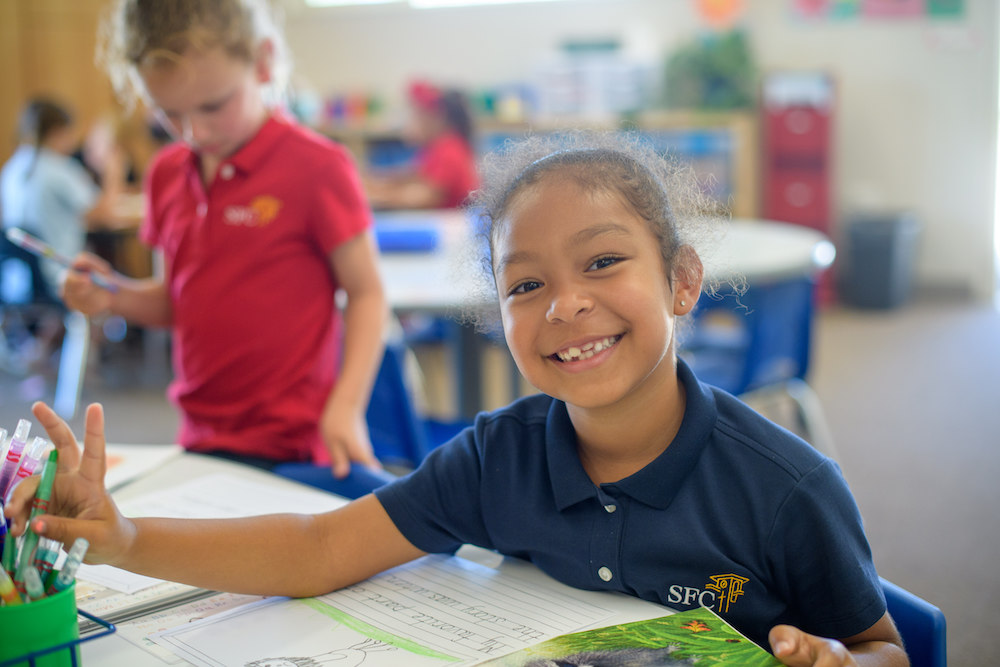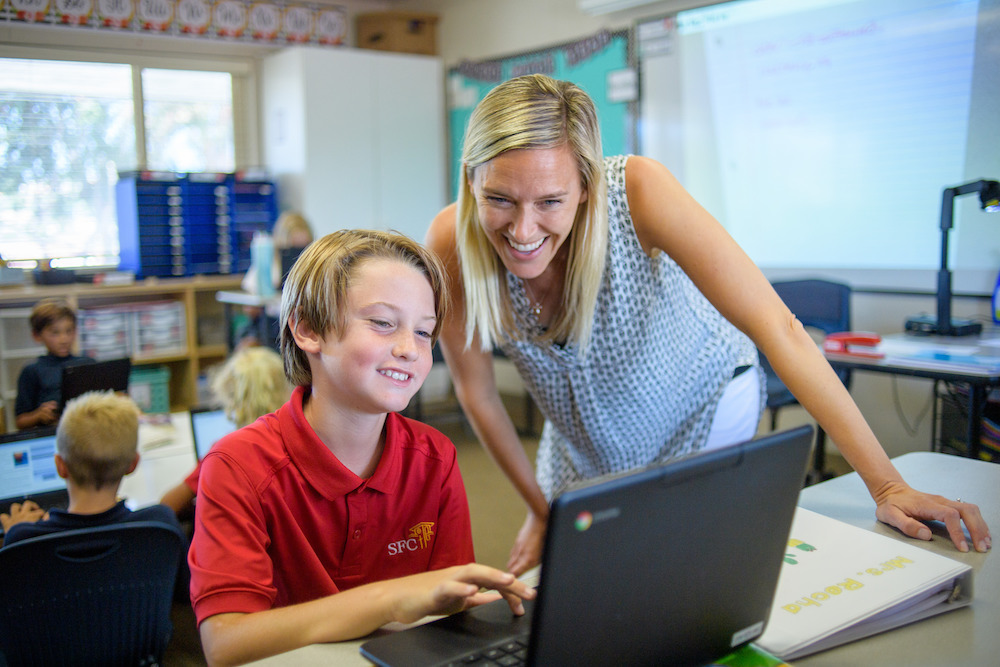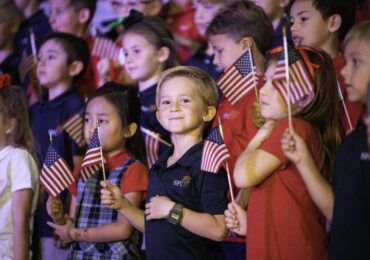Embracing adversity in a safe environment promotes fortitude and resilience, equipping students to become strong, compassionate, and critically-engaged young people. Santa Fe Christian has created strategies for students to address social, academic, and other difficulties that surface daily, both on and off-campus.
Elementary School Principal Hannah Park and Elementary School Assistant Principal Amanda Walker share practical tools to help young students navigate daily struggles. Park believes that guiding students in finding healthy ways to face obstacles, especially during formative years like Elementary School, is essential for their long-term success and future. Not only are “children forming their worldview,” she says, “they’re understanding who they are in light of who everyone else is.”
Cultivating a climate of exploration and discovery encourages students to encounter failure more freely. “At SFC, we allow mistakes to be made,” Park says, “sometimes, you learn more from the mistakes than perfection.” Park asserts that it’s not helpful if “every single thing is judged or graded to a certain degree.” Allowing children to attempt new things and make mistakes is “part of the process.”
More specifically, Walker explains how teaching young students “what we call an affordable mistake” eases the fear and pressure of failure and contributes to a well-rounded learning experience.
Making “Affordable” Mistakes
An “affordable mistake” is one that a student has “to live through. It feels very real to them. It’s like their world is crumbling because they didn’t complete their homework assignment…or forgot their lunch at home,” Walker says. “Ultimately, these types of mistakes are affordable. They’re going to live through it.” Sometimes a student learning “from living through the consequences of that mistake is far more valuable than rescuing them from it,” she says.
While children are allowed to feel the weight of an affordable mistake in a nurturing environment, staff also empower young students with skills to handle discomfort better when it inevitably arises. “Life will throw you lots of things. You’ll make mistakes. Unfortunate and unfair things will happen to you,” Park says. SFC teachers support students in understanding “why things happen in life and how to get through them.”
Let’s get to know each other. Fill out our kickoff questionnaire to learn more!
“This life wasn’t supposed to be easy…our job isn’t to make sure that we clear the path for the kids, so they don’t experience hardship,” Park underscores. “Our job is to ensure that our kids know how to think critically, for them to take responsibility and ownership of what they have done and how they can solve their own issues and then move from there.”
The 3 R’s of Character Building
Park delineates “the respect, responsibility, resourcefulness themes are our three R’s of character building blocks for Elementary School.” SFC teachers enable students with crucial tools to assist when they feel stuck in a challenging situation.
“Reaction Scale”
One of the tools used in Elementary School is called the “reaction scale,” where students identify the problem, then rate the problem on a scale of one to ten, ranging from “not that big of a deal” to a “pretty big deal,” etc.
“We then ask them to tell us about their reaction,” Park says. “How was your reaction? Did it match the problem? Did you react like it was a one, or did you react as if it was a seven?” SFC teachers lead students “to identify how they reacted to the problem and really name it,” building their relational understanding and breaking negative behavior cycles.
What About Bullying?
What about bullying issues, which can undermine a sense of security and threaten a child’s emotional well-being? Park’s thoughtful approach encourages growth and communication for students on both sides of a conflict.
Recently a child told his mother, “I’m having this issue with some friends. And I think it’s time for me to talk to Mrs. Park about it,” Park shared, “I’m glad to hear that he didn’t feel like going to the principal’s office was a negative thing, but really that the adults on this campus are here to help him.” The student recognized his need for counsel. “It truly was him expressing the struggles he’s having.” He processed the dilemma as Park cautiously asked him questions like, “What role did you play in this? What role did the other children play in this particular situation?”
Park then asked each of the students involved for their opinion on how they would like to resolve the situation, “I actually asked the kids, ‘How would you like for me to help? What do you think?’” Park challenges students’ assumptions that she will tell them what to do. Instead, she enables their critical-thinking by asking them, “What would you like for me to do? Do you want me to solve it for you? Or would you like for me to do A or B?” Park gives them several options, as well as time to consider or try-out those options.
Children often have difficulty grasping the impact they make in a situation, “but they’re quick to recognize the wrong done to them,” Park notes. “I want them to be part of that process of problem-solving so that when that time comes, they’re really invested. They were part of that solution…It’s not about me telling them what to do. They have to self-identify the role that they played.”
Partnering With Parents to
Mold Resilient Kids
Ultimately, SFC educational philosophy revolves around parent-student-staff partnership. Park hopes that parents “have truly felt the partnership from the school. I so wholeheartedly believe that we’re on the same team. It’s never about us and them.” Park emphasizes that it’s less about who is to blame for an issue and more about how to solve the problem together. ” At the end of the day, parents and staff want “to do what’s in the best interest of the child’s development. That’s why we’re here.”







